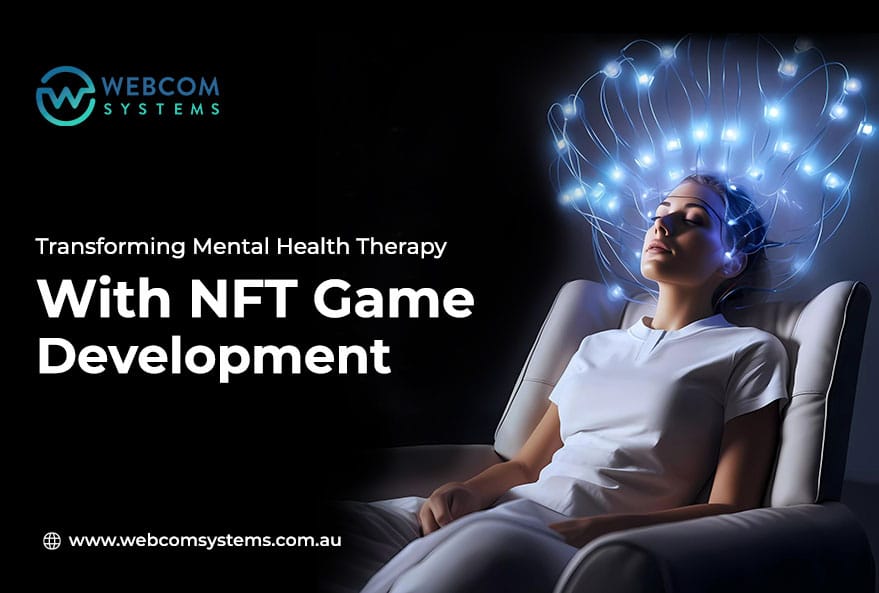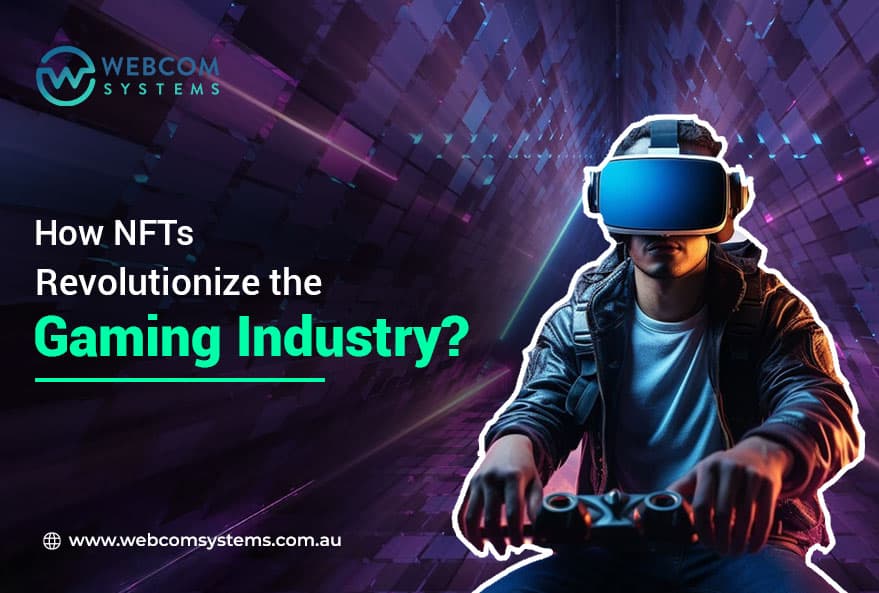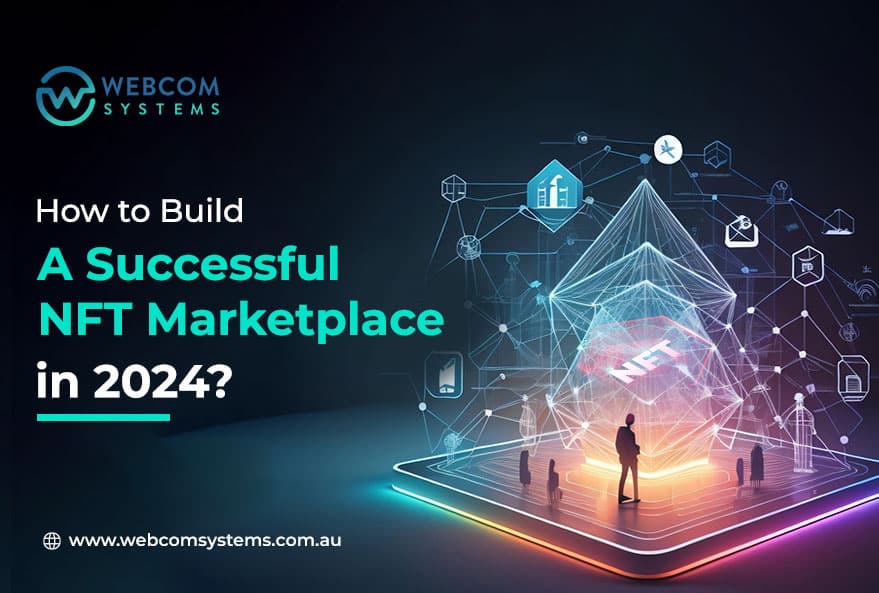Over the past few years, the interplay between technology and mental health therapy has resulted in novel methods of helping people achieve their wellness. A mental health therapy with a groundbreaking use of NFTs game development is one of the most exciting developments. This integration of technology and therapy holds the promise of revolutionizing the way we perceive and react to mental health issues.
Based on the research from the World Health Organization (WHO), mental illnesses are the leading cause of mortality that is related to disorders and diseases globally. Still, between 30 to 80 percent of people with mental health illnesses do not seek treatment. From a scoping review, it was revealed that the USA and UAE were the countries that were doing original research more than any other in the application of NFTs in healthcare, with 46% of the studies analyzed being those from the United States and the United Arab Emirates.
The study by XRHealth has proved that virtual reality therapy is successfully able to reduce anxiety and stress levels, up to 34% for Generalised Anxiety Disorder and 32% for stress. NFTs can be used in support of mental health initiatives and charity, where part of the NFT sale proceeds are donated to mental health organizations that help in the provision of services such as counseling, therapy, and crisis hotlines. These figures represent how NFTs and VR technology are gaining in popularity and are already entering the mental health care arena.
In this blog, we will be looking at how NFT game development can impact mental health therapy and, how it can be beneficial, and how it will shape the future of this discipline.
The Rise of the NFTs and the Development of Game in Mental Health Treatment
Non-fungible tokens (NFTs) have experienced significant popularity in the digital realm, most prominently in the arts and collectibles. NFTs are digital assets that are assigned a unique code that is stored on a blockchain, which makes them distinct and not interchangeable. This technology has now crawled into mental health therapy, opening a new window of opportunity for engaging and productive interventions.
For a long time, game development has been acknowledged as both a form of entertainment and an educational tool. However, its application in mental health therapy awaits investigation. Through the merging of blockchain technology with game development, platforms for supporting people’s mental health in a new way have now been developed.
Impact Of NFT Games On The Mental Health Therapy
The effect of NFT games on the mental health revolution is a subject of great debate and eventually. NFT gaming organizations are currently developing a model of integrated health features that may include guided meditation techniques and cognitive behavioral therapy to promote mental health and regulate emotions.
Games that utilize NFT make for more interactive and lifelike environments that allow players to socialize, reduce stress, and meditate, all of which have an impact on mental health. Similarly, they can be used as reward tokens for achieving specific therapeutic goals. Additionally, they will be able to build communities for engaging, interacting, and working together.
Metaverse and NFTs provide plenty of benefits to mental health, but they still carry some risks. The fact that people may spend hours in the metaverse might result in a situation when the line between the real world and the virtual world is not clear, distorting mental health. Yet, the metaverse also delivers affluent resources for those willing to help themselves, implementing novel therapeutic concepts and global support groups.
The Benefits of NFT Game Development in Mental Health Therapy
Ownership and Value: The NFTs create an opportunity for anyone to own specific digital assets since they represent the unique digital assets within the game environment. They can create a sense of ownership and inherent value, which, if they lead to a positive mindset and sense of achievement, can be used effectively in psychotherapy, which is based on mental health.
Community and Support: Through NFT games, building caring communities where people get to engage with those who also have the same experiences can be made possible. This feeling of belonging can be the strongest source of encouragement and sympathy, allowing the mental health recovery to be supported by an atmosphere of understanding.
Incentivizing Positive Behaviours: Through NFTs, game developers can encourage desired behaviors and accomplishments by offering benefits and rewards for the items in the game. This gamification strategy is perfect to help people practice self-care, develop coping skills, and accomplish their therapeutic goals.
Accessibility and Reach: One of the greatest advantages of NFT games in mental health treatment is their ability to go to a larger number of people. Digital technologies can overcome geographical barriers, thereby enabling many individuals without the resources or opportunity to find traditional therapy to now have access to mental health support. Their availability from anywhere and at any time makes them a flexible and convenient option for individuals to play games for healing and self-help.
Personalization and Tailored Experiences: NFT games can be created following the user’s personal preferences to offer a more customized treatment method. Through the process of data collection on players’ behavior and preferences, the games can be adapted to fit a particular therapeutic track suited to individual needs. This personalization allows for more successful therapy because the customer feels more related to their own needs and obstacles.
Data-Driven Insights: NFT integration in games provides useful data that is needed for assessment, user behavior analysis, and intervention improvement in mental healthcare. Blockchain technology provides security of this data and makes it transparent, which makes the privacy of users protected and therapists will be able to see the efficiency of some therapeutic elements in the game.
Economic Empowerment: NFTs have their intrinsic economic value. Hence, it can empower the users via getting paid in-game or trading digital assets. This economic dimension often brings the feeling of being powerful, which is an energizer of a positive mindset. It is a new avenue through which the mental health journey of people can be financially supported as individuals can also create and sell their NFTs.
Continuous Engagement: Regular therapy sessions usually happen only at scheduled appointments, but NFT games offer continuous interaction. Unlike regular therapy sessions which are highly structured, this constant availability can be tailored by individuals to fit in whenever they need support.
Case Studies on Therapeutic NFT Games for Mental Health Interventions
Case Study 1: “Sparx” is the name for a video game based on cognitive behavioral therapy (CBT).
“Sparx” game is an NFT project created by specialists from the University of Auckland, New Zealand, to give cognitive behavioral treatment for teens suffering from depression. The game puts you into a fantasy environment, allowing you to train yourself in how to fight and retrain negative thoughts, solve problems, and build resilience. An RCT or randomized controlled trial, “Sparx,” was found to be equally effective as traditional face-to-face therapy in decreasing depression symptoms. The game’s intriguing plot and interactive nature are the most significant features that place it within effective therapeutic tools for mental health treatment.
Case Study 2: “Flowy”- NFT Game for Anxiety Mitigation
“Flowy” is the NFT game of choice for individuals who struggle with anxiety, as the game teaches the user relaxation and mindfulness techniques that will help them meditate and slow down. Through the game, players are taken to serene environments where they practice controlled deep breathing and positive imagery, thus helping reduce stress and improve emotional wellness. A pilot trial was carried out by a mental health clinic, which indicated that those who played ‘Flowy’ regularly reported a major decrease in the symptoms of anxiety. In this context, the engaging nature of the game and the emphasis on stress reduction indicate that it is an attractive complement to anxiety treatment programs.
Case Study 3: “Mindful Maze” – a mindful NFT game for online wellness training.
“Mindful Maze” is an interactive game concept where puzzle-solving and mindfulness training are integrated. The players are guided through the complex maze while practicing mindful attention and non-attachment. An ADHD-based small-scale study demonstrated that the “Mindful Maze” play was related to ABILITIES to concentrate and self-regulate. Mixing the concept of mindfulness with gameplay makes it a useful tool for people who want to improve their mental health status.
These examples show that therapeutic NFT games possess the ability to offer valuable tools for mental health therapy. Through utilizing the interactive and engaging aspects of games, these modern approaches have become unique models that allow the addressing of many mental health issues in exciting and accessible formats.
The Future of Developing Metaverse Games on NFT in Mental Health Counseling
In the next era, the role of NFT games developing in the area of mental health therapy is going to escalate. By carrying on the research and development, we expect to see games that are more detailed and created purposely to attain a wide range of mental health issues. These games may get even more connected to regular therapy and be proposed as additional uses of which a therapist can remind his clients.
Besides, with mental health issues becoming more and more known, there is a good chance the stigma against mental health issues will decline.
If you’re seeking to merge the dynamic realm of NFT games with the healing benefits of mental health therapy, consider leveraging the expertise of Webcom Systems in NFT game development. Our immersive experiences are designed to promote mental well-being, allowing players to delve into captivating gameplay, unlock exclusive NFTs, and embark on a journey of self-discovery and emotional healing. With Webcom Systems, you can leave your worries behind and immerse yourself in a world of relaxation and therapeutic exploration. Start your journey today!
Also Read : The Future of NFT Development: Anticipating Trends and Innovations in the NFT Space




